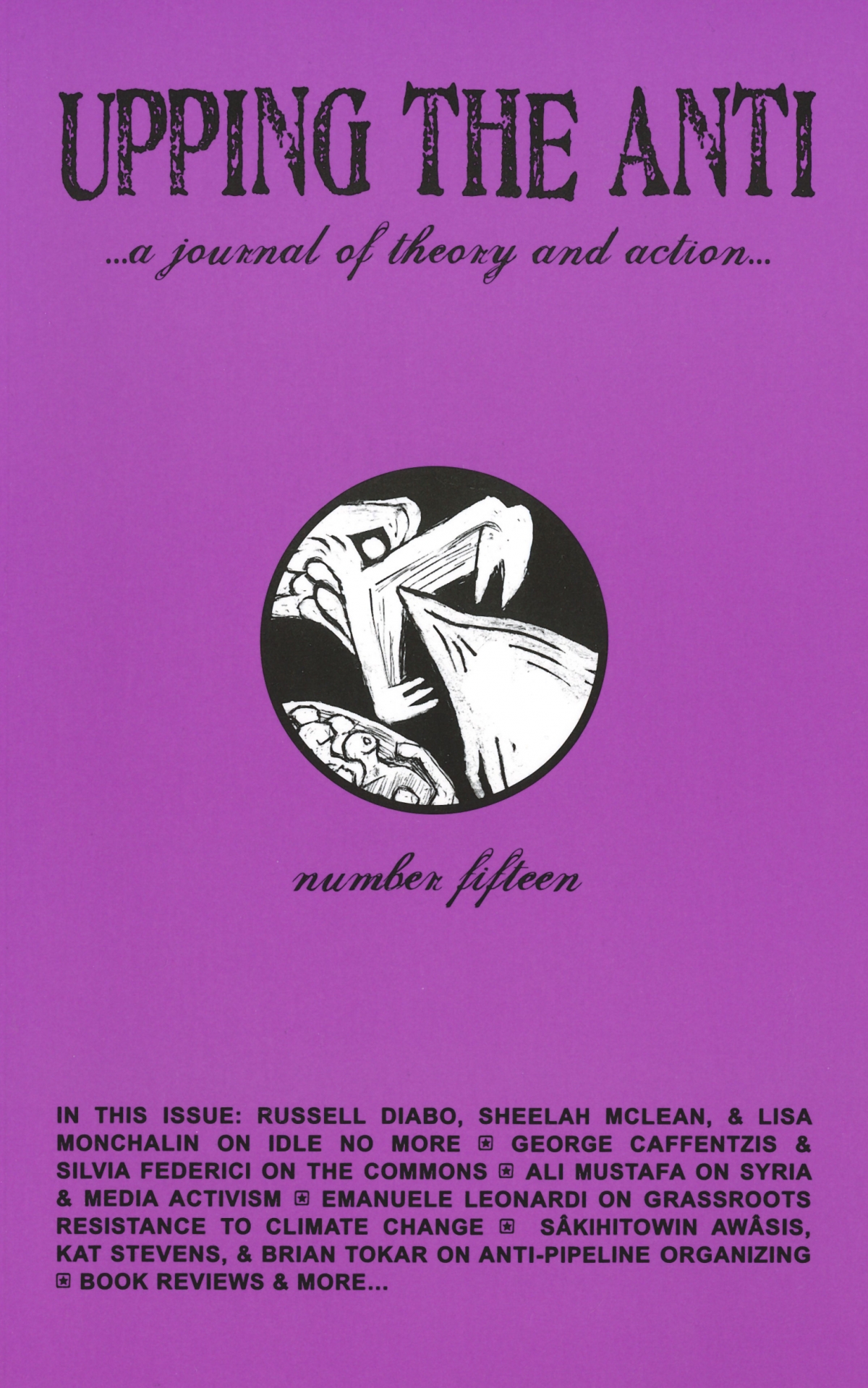Anti-Pipeline Organizing Across Turtle Island
Interviews with Sa?kihitowin Awa?sis, Brian Tokar & Kat Stevens
To expand at the pace expected by its investors, the tar sands industry requires a set of pipelines that can transport raw bitumen (a form of asphalt that often is referred to as “tar sands”) to refining and upgrading facilities miles away from its origin in Alberta. This means constructing, expanding, or repurposing a series of pipelines.
Corporate press attention has been directed toward the proposals for Enbridge’s Northern Gateway pipeline and the extension of TransCanada’s Keystone XL. This coverage typically highlights federal lobbying and review processes, even as many campaigners dismiss those legal channels as hollow formalities. Routine pipeline spills are receiving local press attention, but this narrow frame does not capture the scope of the grassroots strategies, tactics, and analyses in anti-pipeline mobilizations in North America.
For movement strategists, resisting tar sands pipelines is an effort to slow or halt the expansion of the industry and involves a front-line strategy of building a base for regional community organizing, while supporting residents who face health and environmental threats. In the spring of 2013, Toban Black interviewed activists organizing in three different regions across Turtle Island. The following interview series demonstrates the breadth of movement opposition to pipeline projects.
To read this interview in full, order Issue 15 here.

